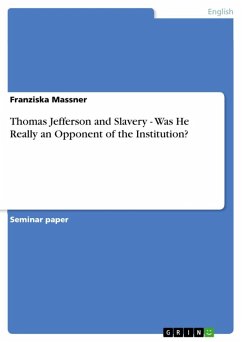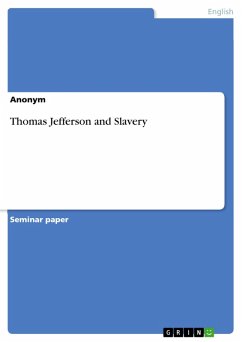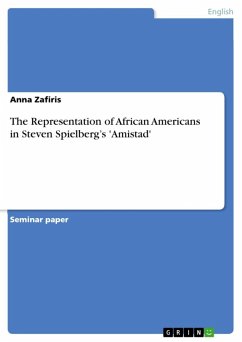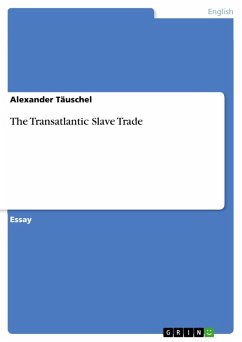Seminar paper from the year 2005 in the subject American Studies - Culture and Applied Geography, grade: 2,0, University of Potsdam, language: English, abstract: 1. Introduction "We hold these truth to be self-evident, that all men are created equal, that they are endowed by their Creator with certain unalienable rights, that among these are life, liberty and the pursuit of happiness. [...]" These are the words Thomas Jefferson became famous for. For many people he is the father of liberty in the United States. What most people forget is that at Jefferson¿s time "all" meant only the white society. His words did not include blacks. The man who proclaimed liberty already possessed over 150 slaves when he wrote the Declaration of Independence. Throughout his life he always condemned slavery in theory, but in practice he died as a slaveowner, having done nothing to ensure the right of liberty to them. Jefferson¿s ideas about slavery were complex and ambiguous. On the one hand, his words were those of an abolitionist who would do everything to end slavery. On the other hand, he was only an ordinary slaveowner who bought and sold slaves and never tried to end slavery seriously. In fact, Jefferson did many things for his country people rightly admire him for. He helped to create and build the United States and used his political power to establish democracy and freedom among his people. But when it comes to slavery, there is nothing really to admire about Jefferson. He proposed liberty, but stayed a slaveowner during his life. This paper will deal with Thomas Jefferson¿s attitude towards slavery. It will show that he never really acted on his words and try to explain the reasons for his inactivity. Therefore it is necessary to speak about the economic and political background of Jefferson¿s time as well as his attitude towards blacks as a race first. The second part will show why Jefferson condemned slavery theoretically and for what reasons. The third part will deal with the actions of Jefferson concerning the issue of slavery. 1 http://federalistpatriot.us 2 Paul Finkelman. Slavery and the Founders. (New York: M. E. Sharp, 1996) 105.
Dieser Download kann aus rechtlichen Gründen nur mit Rechnungsadresse in A, B, BG, CY, CZ, D, DK, EW, E, FIN, F, GR, HR, H, IRL, I, LT, L, LR, M, NL, PL, P, R, S, SLO, SK ausgeliefert werden.









